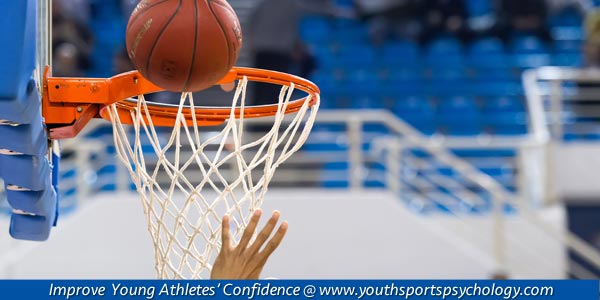
Using Positive Mental Imagery For Success
Too often, when young athletes prepare to compete or perform, they imagine in their minds the bad things that might happen to them—like getting beat out by a competitor or missing a critical shot.
What they need to do instead is visualize success, says Steven Balzac, a psychology professor and former nationally ranked fencer.
“What you imagine is what you get,” says Balzac. “If we imagine success, we prepare ourselves for success because that’s what’s in our heads.”
But how exactly can sports parents help young athletes do this?
Begin by identifying what success looks like in your young athlete’s sport, says Balzac.
If there’s a person in your child’s sport who’s successful, have your young athlete watch that person—on TV, in videos, or in person.
“When I was a competitive fencer, I would watch the really accomplished guys fencing and imagine what they were doing,” says Balzac. “I would then shift the image of them doing it to me doing it.”
This technique helped Balzac execute moves in the same way the accomplished fencers executed them, he says.
Hold on, you might say. Not so fast! First of all, your young athletes might not find it so easy to imagine playing like pros!
In fact, they might fall into the trap of imagining just how different they are than the accomplished athletes. They might see themselves doing everything wrong—while the accomplished athletes did everything right.
That’s common in young athletes, as we mentioned above. Often, they’re more likely to imagine negative things about themselves—not positive.
When we ask motocross racers to visualize success, they’ll sometimes create images in their heads of their competitors, and think of all the ways their competitors are more skilled than they are!
If your young athletes can’t just jump into imagining themselves playing like pros, they can try to do it in steps.
Balzac helps young athletes get into the proper mindset by telling a story, scene by scene, he says.
“Sometimes you have to walk them through it and find a piece of it they can execute in their minds, and then go from there,” he explains. “Build from there.”
While he’s doing this, he’s careful to assume that most young athletes use imagery in different ways. Their imagery may not involve visual images, but sounds, smells or touch.
To help kids understand what they focus on when they imagine things in their heads, he asks them what happens when they dream. Do they remember the words, and not the images? Do they remember tastes, or colors or touch?
“Their responses give me plenty of information about what works for them and what doesn’t,” he says. “If I’m working with a group, I might describe the scene in different ways. I might ask them to see the beach and feel the waves and smell the seagulls. I build up the scene with different hooks in it.”
Once your young athletes feel more comfortable imagining themselves performing like athletes they admire, be careful about one thing:
They may set up in their minds a very strict idea about how they should perform, and then become frustrated if they aren’t able to do it.
Remind them that they don’t have to perform exactly the way they imagined.
Related Articles on Kids’ Mental Game:
- How Young Athletes Can Use Mental Imagery to Boost Performance
- Positive Mental Imagery for Young Athletes
- How Young Athletes Benefit From Mental Imagery
*Subscribe to The Sports Psychology Podcast on iTunes
*Subscribe to The Sports Psychology Podcast on Spotify
Improve Your Mental Game From Anywhere In The World

We’re certain that, as a parent, you want to help your child develop confidence and discipline in sports and life. And as a sports parent, you’d love for your children to reach their potential in sports. But encouraging your child to strive for greatness without pressuring them can be a challenge.
You can get expert mental coaching with us from anywhere. Meet with us via Zoom, Skype, FaceTime or phone call. With today’s video technology, we are able to connect with athletes and coaches all over the globe.
Call Us Today to Schedule Your Free 15-Minute Session.
Find Out How Your Athlete Can Benefit From One-on-One Mental Coaching!
